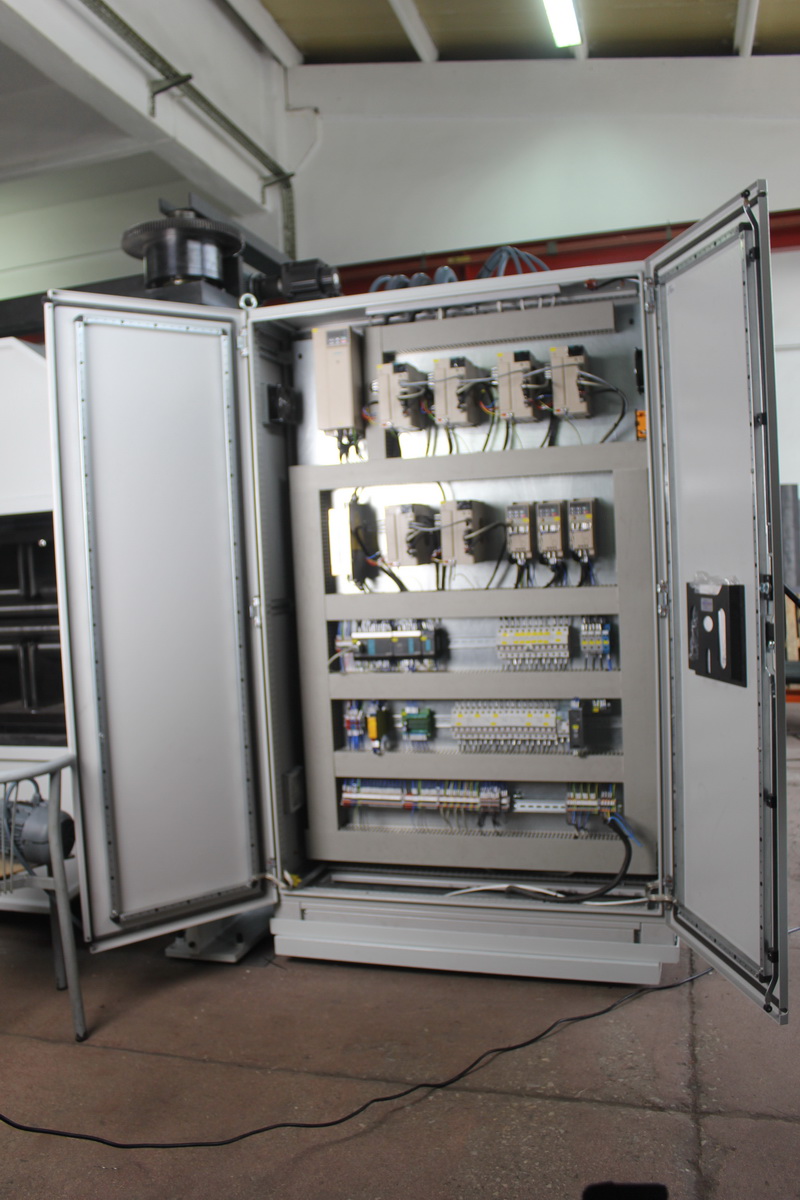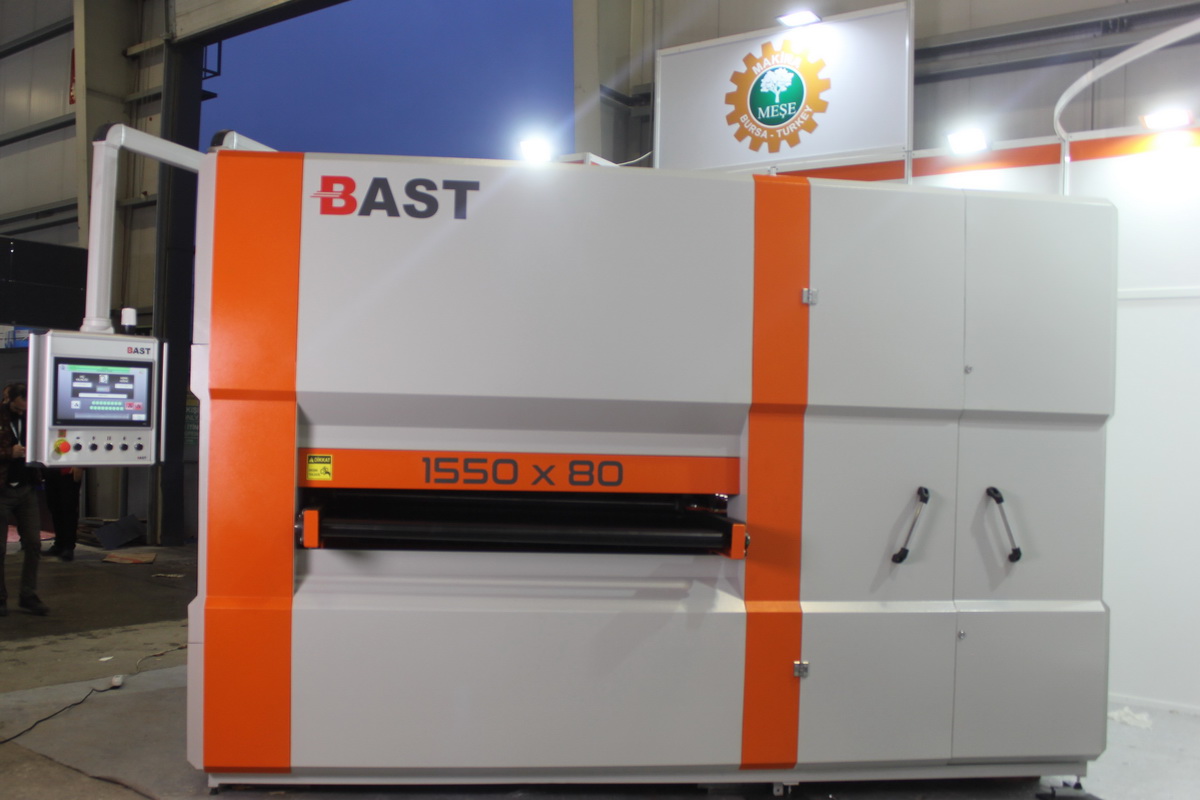In today’s rapidly evolving automotive industry, manufacturers face constant pressure to improve production efficiency, reduce costs, and maintain high product quality standards. Metal sheet leveling machinesBAST Sheet Leveling Machine have emerged as a crucial tool that helps automotive companies meet these challenges. These advanced machines offer a range of benefits, from improved production efficiency to enhanced safety for workers. In this article, we will explore the various advantages that metal sheet leveling machines bring to the automotive industry.

Metal Sheet Leveling Machines
Introduction
Metal sheet leveling machines, also known as levelers, are sophisticated pieces of equipment used to flatten and straighten metal sheets. They are particularly valuable in the automotive industry, where precision and quality are paramount. Metal sheet leveling involves the removal of unwanted deformations, such as wrinkles, curls, and waves, from the metal sheets, resulting in a smooth, flat surface. This process ensures that the sheets are ready for further manufacturing operations, such as cutting, bending, and welding.
Advancements in Metal Sheet Leveling Machines
Modern metal sheet leveling machines have witnessed significant advancements in recent years, thanks to technological progress. These machines now offer higher precision and accuracy, ensuring that the leveled sheets meet strict dimensional requirements. Additionally, many of the leveling processes are now automated, minimizing human errors and improving overall efficiency. The machines also offer versatility and flexibility, allowing manufacturers to process different types of metal sheets, including steel, aluminum, and alloys.
Improved Efficiency in Production
One of the primary benefits of metal sheet leveling machines is their ability to enhance production efficiency. By eliminating deformations in metal sheets, these machines ensure that subsequent manufacturing operations can be carried out smoothly. This eliminates the need for time-consuming manual corrections and adjustments. As a result, manufacturers experience faster turnaround times, allowing them to meet tight production deadlines and respond quickly to customer demands.
Furthermore, metal sheet leveling machines reduce material waste. By straightening and flattening the sheets, manufacturers can maximize material utilization, reducing the need for additional raw materials. This not only leads to cost savings but also helps in environmental sustainability efforts by minimizing waste generation.
The improved quality of leveled metal sheets is another significant advantage. Smooth, flat sheets contribute to higher-quality end products with fewer defects. This, in turn, enhances customer satisfaction and reduces the likelihood of rework or scrap, saving both time and money.
Cost Savings and Return on Investment (ROI)
Metal sheet leveling machines can result in substantial cost savings for automotive manufacturers. The elimination of rework and scrap costs associated with defective metal sheets is a significant financial benefit. With leveled sheets of superior quality, manufacturers can minimize the need for reworking or discarding materials, thereby reducing costs.
Additionally, metal sheet leveling machines decrease labor requirements. The automated processes involved in leveling eliminate the need for manual labor-intensive tasks such as manually straightening sheets. This frees up the workforce to focus on more skilled and value-added activities, increasing overall productivity.
Moreover, investing in metal sheet leveling machines offers long-term financial benefits. While the initial investment may seem significant, the return on investment (ROI) becomes evident over time. The increased efficiency, reduced waste, and improved product quality contribute to higher profitability in the long run.
Enhanced Safety and Worker Well-being
Metal sheet leveling machines prioritize worker safety and well-being. By automating the leveling process, these machines minimize the need for manual labor, reducing the physical strain on workers. This helps prevent musculoskeletal injuries and related health issues, fostering a safer working environment.
Additionally, the risk of workplace accidents is reduced. Metal sheet leveling machines are equipped with safety features such as sensors, emergency stop buttons, and protective guards. These measures ensure that workers are protected from potential hazards during the leveling process, further enhancing workplace safety.
Furthermore, metal sheet leveling machines improve working conditions. The automation and precision of these machines create a more controlled and predictable production environment, reducing the exposure to harsh working conditions. This leads to increased job satisfaction and employee morale.

Automotive Industry
Adaptability to Various Materials and Thicknesses
Metal sheet leveling machines demonstrate remarkable adaptability, making them suitable for handling a wide range of materials and thicknesses. Whether it’s thin aluminum sheets or thick steel plates, these machines can effectively straighten and level them.
The capability to process various materials is particularly advantageous for the automotive industry, where different types of metals are utilized in vehicle manufacturing. Metal sheet leveling machines enable manufacturers to work with different materials seamlessly, ensuring consistent quality across the production line.
Moreover, these machines accommodate varying thicknesses of metal sheets. This versatility allows manufacturers to meet specific requirements for different automotive components, whether it’s a thin body panel or a robust structural part.
Increased Production Capacity
Metal sheet leveling machines significantly contribute to increasing production capacity in the automotive industry. With faster turnaround times, manufacturers can achieve higher volume output, meeting customer demands more efficiently. This is especially crucial in a competitive market where timely delivery plays a crucial role in customer satisfaction.
Moreover, the increased efficiency and reduced reliance on manual labor result in optimized production processes. Manufacturers can take on more orders and expand their business opportunities, contributing to growth and success in the automotive industry.
Case Studies and Success Stories
Numerous real-world examples highlight the benefits of metal sheet leveling machines in the automotive industry. Automotive companies that have incorporated these machines have experienced substantial improvements in production efficiency, product quality, and overall profitability. Case studies and success stories serve as testimony to the positive impact of metal sheet leveling machines on the automotive manufacturing sector.
Future Trends and Innovations
As technology continues to advance, the future of metal sheet leveling machines looks promising. Integration of artificial intelligence (AI) and machine learning algorithms will further enhance the capabilities of these machines. AI-powered systems can analyze data in real-time, enabling predictive maintenance, optimizing leveling processes, and improving overall efficiency.
Additionally, metal sheet leveling machines will be an integral part of the Industry 4.0 revolution. The integration of these machines with other smart technologies, such as robotics and Internet of Things (IoT), will create interconnected and automated production systems, driving further advancements in the automotive industry.
Conclusion
Metal sheet leveling machines play a vital role in the automotive industry by offering a range of benefits. From improved production efficiency and cost savings to enhanced safety and worker well-being, these machines have become indispensable for automotive manufacturers. With their adaptability to various materials and thicknesses, metal sheet leveling machines contribute to increased production capacity and business growth opportunities.
By investing in metal sheet leveling machines, automotive manufacturers can experience faster turnaround times, reduced material waste, and enhanced product quality. These machines not only save costs in terms of rework and scrap but also provide long-term financial benefits through improved efficiency and profitability.
Moreover, metal sheet leveling machines prioritize the safety and well-being of workers. With automated processes and safety features, they minimize manual labor and reduce the risk of workplace accidents. This leads to a safer working environment and improved employee satisfaction.
The adaptability of metal sheet leveling machines to various materials and thicknesses is another advantage. Automotive manufacturers can handle different types of metal sheets, ensuring consistency in quality across different components and parts. This flexibility allows for greater customization and meets the specific requirements of each automotive application.
Furthermore, metal sheet leveling machines contribute to increased production capacity. With faster turnaround times and optimized processes, manufacturers can meet customer demands efficiently and expand their business opportunities. This positions them competitively in the automotive market and strengthens their overall growth.
Real-world case studies and success stories demonstrate the tangible benefits of metal sheet leveling machines in the automotive industry. These examples serve as proof of concept and provide inspiration for other manufacturers considering the implementation of these machines.
Looking ahead, the future of metal sheet leveling machines in the automotive industry is promising. Advancements in artificial intelligence and machine learning will further enhance their capabilities, enabling predictive maintenance and process optimization. Additionally, the integration of metal sheet leveling machines with other smart technologies will drive the Industry 4.0 revolution, leading to interconnected and automated production systems.
In conclusion, metal sheet leveling machines offer significant advantages for the automotive industry. From improved efficiency and cost savings to enhanced safety and adaptability, these machines are essential tools for manufacturers seeking to stay competitive and achieve sustainable growth. By embracing the benefits of metal sheet leveling machines, automotive companies can streamline their production processes, deliver high-quality products, and thrive in a rapidly evolving industry.

Metal Sheet Leveling Machines
FAQs
1. Are metal sheet leveling machines suitable for different types of metals?
Yes, metal sheet leveling machines are designed to handle various materials such as steel, aluminum, and alloys. They offer versatility and can effectively straighten and level different types of metals commonly used in the automotive industry.
2. How do metal sheet leveling machines contribute to cost savings?
Metal sheet leveling machines reduce costs through various means. They minimize rework and scrap costs by ensuring the production of high-quality leveled sheets. Additionally, these machines optimize material utilization, reducing waste and the need for additional raw materials.
3. Can metal sheet leveling machines handle varying thicknesses of metal sheets?
Yes, metal sheet leveling machines are adaptable and can process varying thicknesses of metal sheets. This flexibility allows automotive manufacturers to meet the specific requirements of different components and parts, whether they are thin body panels or thicker structural elements.
4. Are metal sheet leveling machines suitable for small-scale automotive manufacturers?
Yes, metal sheet leveling machines can benefit both large-scale and small-scale automotive manufacturers. They offer improved efficiency, cost savings, and enhanced production capacity, regardless of the scale of operations.
5. How do metal sheet leveling machines contribute to worker safety?
Metal sheet leveling machines automate the leveling process, reducing the need for manual labor. This minimizes the physical strain on workers and helps prevent musculoskeletal injuries. Additionally, these machines are equipped with safety features to ensure a safe working environment for operators.


Leave A Comment